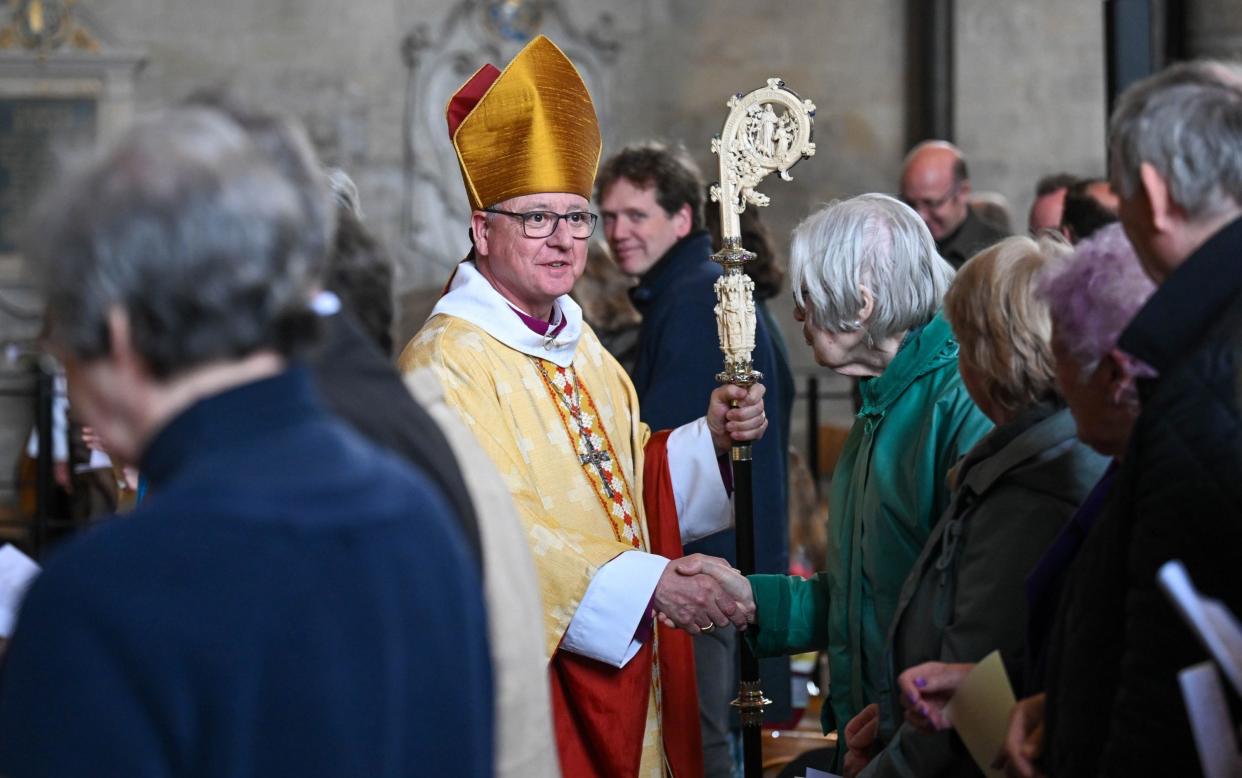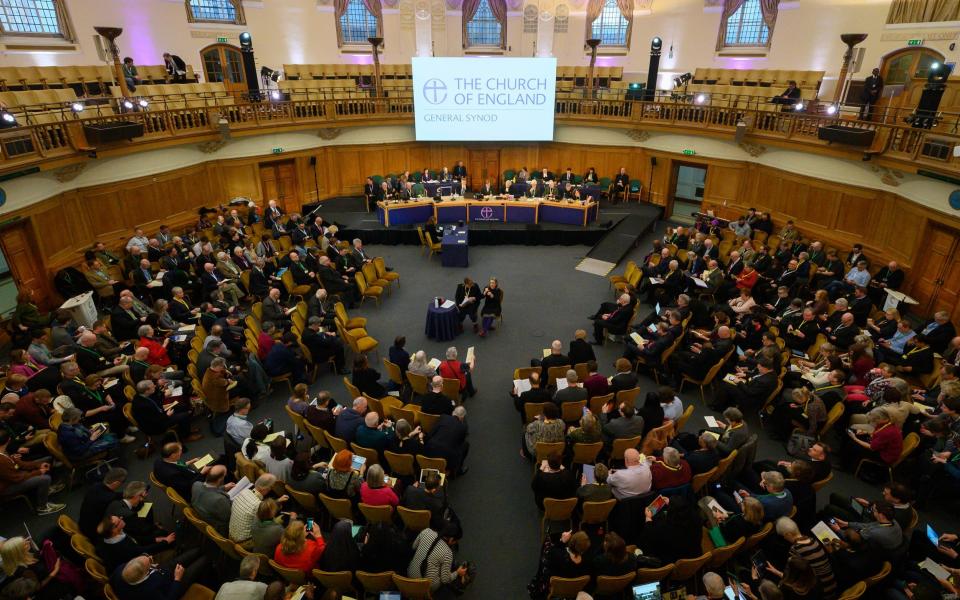Parishioners stop donations to churches in protest at £100m slavery fund

Parishioners are withdrawing donations from local churches in protest against the Church of England’s £100 million slavery reparations fund, officials have warned.
Church officers have raised concerns that churchgoers have been put off donating to the Church of England following the establishment of the fund, which was announced in January 2023 to “address past wrongs of slavery”.
Luke Appleton, a churchwarden at Paignton Parish Church in Exeter, said there was “anger” among churchgoers over the Church’s commitment and that some members were writing the church out of their will as a result.
In a question submitted to the General Synod, the Church’s legislative body, Mr Appleton asked whether churches will be compensated for parishioners withdrawing donations as part of a backlash against the fund.
In response, bishops have moved to reassure congregations that none of the money they give to their local parish is being used for the fund.
The Bishop of Salisbury, speaking on behalf of the Church Commissioners – who handle more than £10 billion of assets for the Church of England, including the reparations fund – said that the money was coming from the church’s central investment fund and would be given out in grants to projects working with communities that are still suffering from “the legacy of horrifying cruelty” of the slave trade.
He added: “We do not have any data about a material loss in giving due to the Church Commissioners’ work to address links to African chattel enslavement, although we have heard anecdotally that some givers may have chosen to withdraw their support.”
‘Church is seen to divert money away from core purpose’
The Church has produced a “Myth-Buster resource”, which it says counters “misleading impressions” about the reparations fund included in some media coverage.
Addressing concerns over reparations, Mr Appleton told The Telegraph: “This is the issue I have been contacted about more than any other in the past year by faithful church members.
“The line that comes back again and again is ‘why should I give from my small pension to the church when they have £100 million misspend in this way’
“I suspect there is especially anger where churches are being told that they can’t have a dedicated vicar or money to repair their historic and culturally significant buildings but the central Church is seen to divert such large sums away from its core purpose.”

The announcement of the fund came after the Church Commissioners last year published a report into one of their main predecessors, Queen Anne’s Bounty.
The report said the Bounty had invested the rough equivalent of £440 million today in the slave trade, via the South Sea Company, between 1720 and 1740.
The term “reparations” has been used to refer to the fund, but the cash is not due to be given out as compensation to descendants of enslaved people.
Instead, the interest from the fund is due to be awarded to community projects working in black communities in Britain.
‘Most of the church’s investment has nothing to do with the slave trade’
Campaigners have called for the money to be redirected to hard-pressed rural parishes to try to revive shrinking congregations. Nearly 300 parishes have closed in the past five years as the number of Anglican worshippers continues a long-term decline across England.
It has forced countryside churches to share priests with other parishes and left them increasingly reliant on lay volunteers and retired ministers to take services.
Some leading historians, however, have disputed the legitimacy of the research that led to the fund being established.
Robert Tombs, Emeritus professor of history at Cambridge, said: “The church is proposing to pay a great deal of money in reparations for a crime that it probably did not commit out of profits that it did not make.
“It is the undeniable fact that most of the church’s investment has nothing to do with the slave trade.
“I think they’ve got themselves into a very difficult position on a very sensitive subject, and I think it would be wise of them to say, we ought to get a second opinion on our original understanding of the situation.”
The question will be discussed at the General Synod, which is meeting in York from Friday until Tuesday 9 July.

 Yahoo News
Yahoo News 
